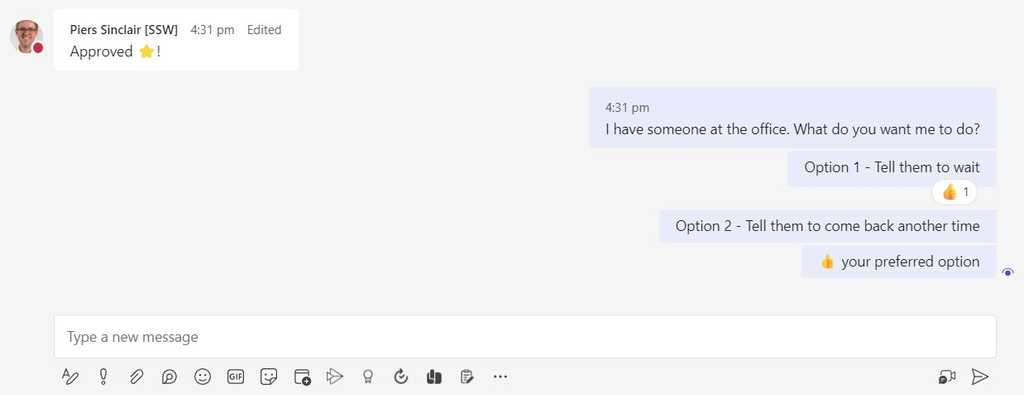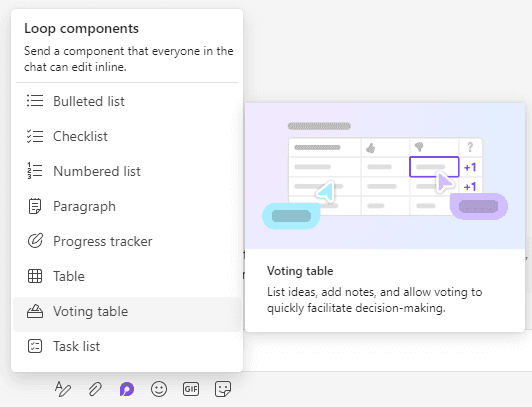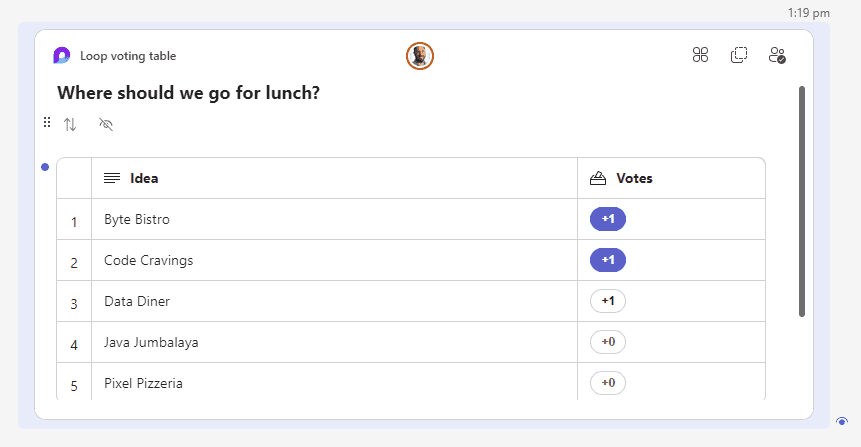Do you make your questions easy to answer?
Last updated by Tiago Araújo [SSW] 11 months ago.See historyDo you sometimes spend time answering unnecessarily complicated questions? This can be a pain and cost valuable time. Or, when you're asking someone a question about something that is blocking you, do you ever get frustrated when the person reads your message but doesn't reply? This can lead to a series of reminders and time spent chasing them up.
Asking easy questions saves time for both the person asking and the person answering, and gets to the decision as quick as possible.
Making questions that are easy to respond to
If you need an answer quickly, you should aim to make as easy as possible for the other person to respond. Where possible, avoid open ended questions as they take more time and effort to reply to. The easier it is for the other person to respond, the quicker and more effective your communication will be. Therefore, you should always aim for the simplest way you can phrase the question without losing the important points.
Note: Depending on the question, you should approach asking it differently - make sure that the way you ask the question matches the level of importance and complexity. E.g.: Don't ask for a $10,000 purchase on a Teams message!
Use "yes or no"
This type of question is the easiest to answer. The clearest way to phrase it is with a 'y or n' at the end of your question.
What are your thoughts on this title for our new video on YouTube?
Figure: Bad example - Open ended question
Is this title good for our new video on YouTube? Yes or no?
Figure: Good example - The other person knows immediately how to answer
Tip: Don't feel like you are confining their reply - if they feel like needing to add more detail, they can and will.
Ask for reactions for multiple options
For a simple question with multiple options, list the options and ask them to "thumbs up 👍" their preferred one. That makes it as simple as possible to respond so you can even catch people who are extremely busy!
Use polls for questions to a group
When you anticipate many replies/votes to your question (e.g. in a group chat), use polls. In Microsoft Teams, use the 'Voting Table' Loop component. Polls help to reduce noise and easily analyze responses.
Avoid a call
A good technique is to say "Can you answer the above... if not, I will give you a call in 15 mins".
When you can't make it simple and/or need a paper trail
If it is important to have a record of a discussion, the best thing to do is call or have an in-person discussion. Once you have the answer, send an as per our conversation email to make sure both parties are clear on the result.









